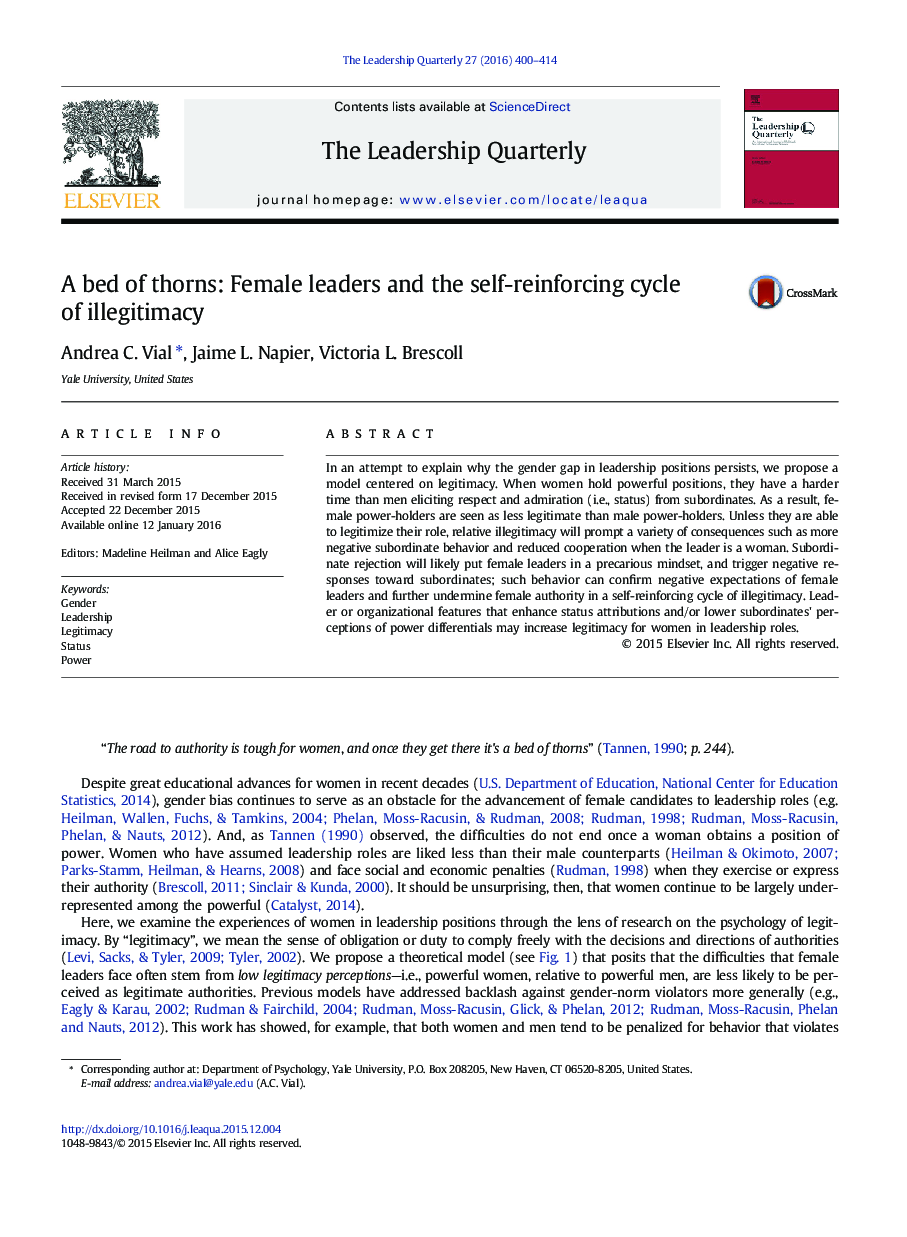| Article ID | Journal | Published Year | Pages | File Type |
|---|---|---|---|---|
| 887692 | The Leadership Quarterly | 2016 | 15 Pages |
In an attempt to explain why the gender gap in leadership positions persists, we propose a model centered on legitimacy. When women hold powerful positions, they have a harder time than men eliciting respect and admiration (i.e., status) from subordinates. As a result, female power-holders are seen as less legitimate than male power-holders. Unless they are able to legitimize their role, relative illegitimacy will prompt a variety of consequences such as more negative subordinate behavior and reduced cooperation when the leader is a woman. Subordinate rejection will likely put female leaders in a precarious mindset, and trigger negative responses toward subordinates; such behavior can confirm negative expectations of female leaders and further undermine female authority in a self-reinforcing cycle of illegitimacy. Leader or organizational features that enhance status attributions and/or lower subordinates' perceptions of power differentials may increase legitimacy for women in leadership roles.
